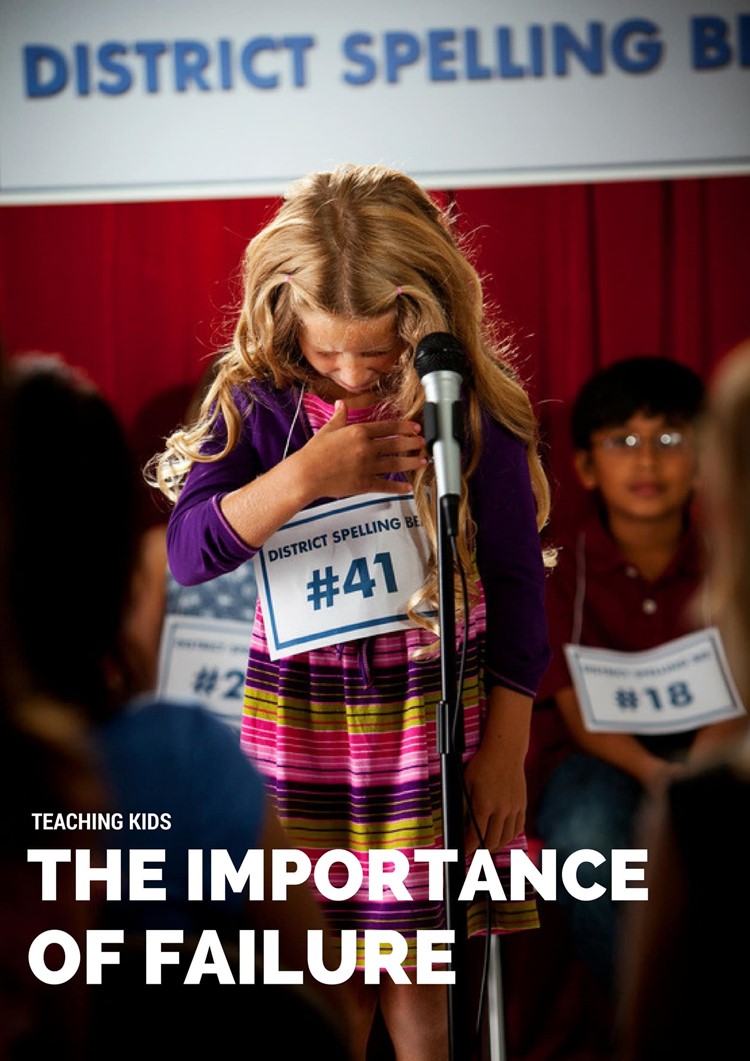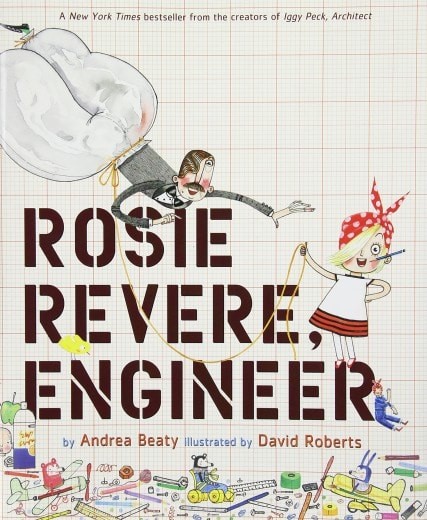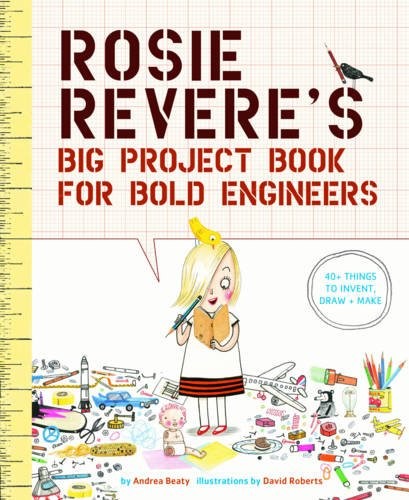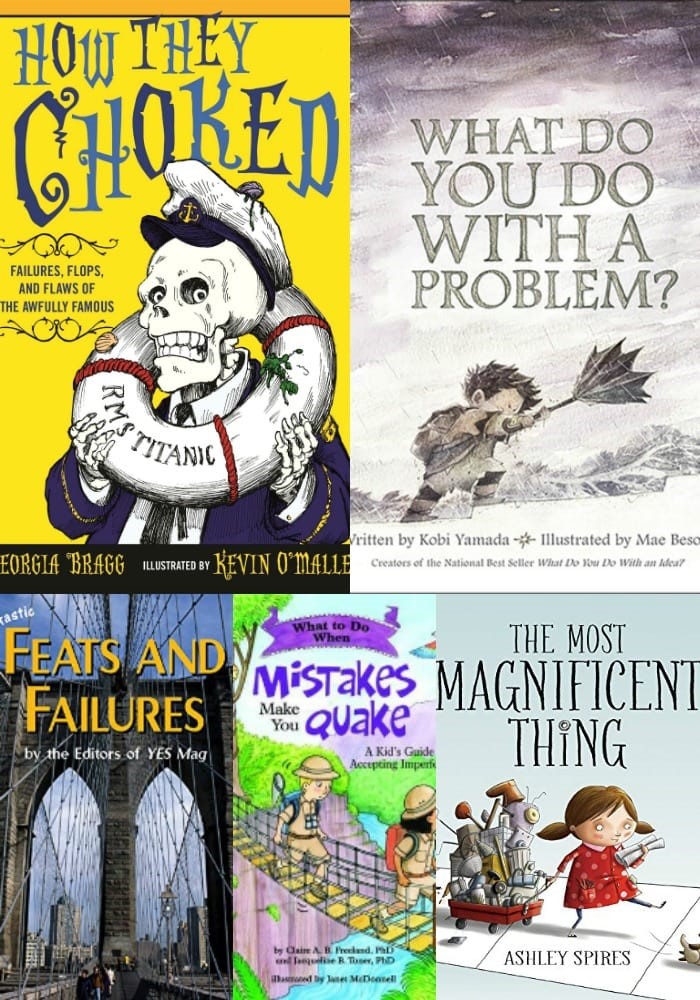
From our Parenting Contributor, Kristina Grum, from Thriving Parents.
Failure is a funny thing. As adults, we hate to fail.
Our mistakes look bigger than they really are.
We think about our mistakes much longer than necessary.
We replay situations and think about what we should have done instead.
When it comes to our children, however, we should approach failure in a completely different way.
We should want our kids to make as many mistakes as possible.
I’ve always encouraged learning from mistakes. Recently, our family began celebrating them. Yes, you read correctly – we CELEBRATE mistakes.
It all started with a book.
We go to Barnes and Noble often. We love to sit and read books and look at the games they have for sale. I never walk out of there without buying a book for someone. The girls in our house (me, included!) have an addiction to books – which is a good problem to have.

A few weeks ago, we met our close friends there and their daughter pointed out the book, Rosie Revere, Engineer. A few people had already mentioned it to me and said we would love it. Our girls love to build and create and often use the most random things to do so. Once, Caroline used a knitted afghan and had it suspended from her bedroom ceiling with paperclips, yarn, and packing tape.
We read the book in the store and loved it so much we bought it immediately. I love how the story reinforces the importance of failure and how failure is the best way to get on the path to success.
This passage reinforced for me how important it is for kids to experience failure over and over again:
She turned round to leave, but then Great-Great-Aunt Rosie
grabbed hold of young Rosie and pulled her in close
and hugged her and kissed her and started to cry.
“You did it! Hooray! It’s the perfect first try!
This great flop is over. It’s time for the next!”
Young Rosie was baffled, embarrassed, perplexed.
“I failed,” said dear Rosie. “It’s just made of trash.
Didn’t you see it? The cheese-copter crashed.”
“Yes!” said her great aunt. “It crashed. That is true.
But first it did just what it needed to do.
Before it crashed, Rosie…
before that…
it flew!”
We celebrate failure every day.
Every day, sometime after school, I ask the girls what mistake they made during the day. It can be as simple as not paying attention in class, saying something mean to their sisters, or throwing their backpacks in the middle of the living room floor. Sometimes it’s more serious as not speaking up for someone, being disrespectful, or hitting a sibling.
The best thing we can do is to teach our child that everyone makes mistakes. It’s important to own up to those mistakes and try to do better the next time.
What this looks like:
Read the book Rosie, Revere, Engineer to your child. Talk about the feelings Rosie has throughout the book. In the beginning, she feels embarrassed by her failure because her uncle laughs. Her great aunt embraces the failure and shows Rosie how it will lead to finding success with her inventions.
Talk about a time you and your child has failed at something. Talk about something in which you failed as a child or an adult. Then the next day ask your child, “What did you fail at today?” or “What mistakes did you make today?” They may be perplexed and not remember what you are talking about at first. Remind them.
“Remember when we read Rosie Revere, Engineer and she became excited about making mistakes because it meant she was learning? What mistakes did you make today?”
At first, they’re going to have a hard time thinking of one. That’s okay. Instead, you tell your child what mistakes you made during the day. It’s really important for adults to participate in this activity too. We need to be modeling that it’s okay to make mistakes.
The most important part of talking about failure is…
We talk about what we’ve learned from these mistakes and how we can work to change them for the next time. It’s important to acknowledge there’s a high chance the same mistake will be made again. That’s okay. People are flawed and we make a lot of mistakes, some of them over and over again. We hope each time the mistake is a little less so we can begin to learn from it.
We should want our kids to make as many mistakes as possible.
During these formative years, we’re available to help guide them on how to pick up the pieces and repair their mistakes, if they need it. When they’re old enough to go out into the world on their own, they’ll be better equipped to handle mistakes and uncomfortable situations.
Here are some great books that help reinforce the importance of making mistakes. They go in age from youngest to oldest audience. I hope you find them helpful.
xoxo
–k


You can pre-order Rosie Revere’s Big Project Book For Bold Engineers, which will have projects your child can work on. I know our kids are going to love it!

Other books to check out on teaching the importance of failure:
The Most Magnificent Thing
What Do You Do With a Problem?
What to do When Mistakes Make You Quake
Feats and Failures
How They Choked

What are some ways you have taught your children the importance of failure? Please share!
Kristina Grum is a Certified Parent Educator who has over a decade of experience working with children, including being a classroom teacher. She took the (very) long route to loving motherhood. These days she strives for ways to connect with her kids, while using shortcuts to manage and organize her home. She is a postpartum mood disorder survivor who thrives on helping others find the joy in parenthood that is just lurking around the corner. She currently teaches positive discipline parenting classes in her local area and she believes that every parent can shift from barely surviving to thriving in Parenthood. Visit her on Thriving Parents today!
This post contains affiliate links that help our site! Thank you for supporting me! xoxo
Pin It